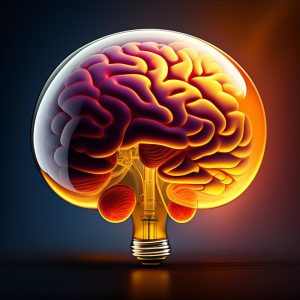
Introduction
‘The Body Keeps the Score,’ penned by Dr. Bessel van der Kolk, has garnered widespread acclaim for its revolutionary insights into trauma and mental health. This groundbreaking book skillfully combines science and self-help to offer a comprehensive understanding of the intricate connections between trauma, the body, and the mind. As we embark on a critical review of this influential work, we will explore its key concepts, evaluate the effectiveness of the healing methodologies presented, analyze its impact on the field of psychology, and uncover its practical implications for readers seeking healing and growth from trauma.
Unraveling the Key Concepts
At the core of ‘The Body Keeps the Score’ lies the pivotal idea that trauma encompasses not only psychological but also physical aspects. Dr. van der Kolk emphasizes the profound impact of traumatic experiences on the brain, nervous system, and body, which can manifest in an array of emotional and physical symptoms. Through a thorough examination of the neurobiology of trauma, the book provides valuable insights into the lasting effects of adverse experiences on individuals.
In addition, the author explores the concept of trauma being stored in the body, resulting in a range of somatic symptoms, chronic pain, and dissociation. By introducing nonverbal therapies like yoga, mindfulness, neurofeedback, and Eye Movement Desensitization and Reprocessing (EMDR), the book presents a holistic approach to healing trauma and emphasizes the significance of understanding the mind-body connection.
Evaluating the Effectiveness of Healing Methodologies
Throughout ‘The Body Keeps the Score,’ Dr. van der Kolk introduces a diverse range of therapeutic approaches that have shown promise in addressing trauma. From EMDR’s rapid eye movements to yoga’s somatic practices and neurofeedback’s neuroplasticity-based training, the book explores a plethora of methodologies. However, it is essential to recognize that the effectiveness of these techniques can vary based on individual needs and circumstances.
The book advocates for a personalized approach to trauma recovery, emphasizing the importance of finding the right therapeutic modality for each person. Moreover, it underscores the significance of a safe and supportive therapeutic relationship in facilitating the healing journey.
Impact on the Field of Psychology
‘The Body Keeps the Score’ has had a profound impact on the field of psychology and trauma treatment. By shedding light on the critical link between trauma and physical health, the book has revolutionized the way trauma-informed care is perceived and practiced. It has inspired researchers and clinicians to delve deeper into the connections between mind and body, leading to more comprehensive and integrated treatment approaches.
Moreover, the book has raised awareness about the necessity of considering the whole person in trauma recovery, leading to increased attention to the significance of self-care, mindfulness practices, and the integration of body-oriented therapies in clinical settings.

Practical Implications for Readers
For readers seeking healing and growth, ‘The Body Keeps the Score’ offers invaluable insights and practical guidance. By understanding their unique responses to trauma, individuals can cultivate a deeper sense of self-awareness and resilience. The book equips readers with tools to begin their healing journey, empowering them to incorporate somatic practices, mindfulness techniques, and trauma-informed therapies into their daily lives.
Through a lens of hope and empowerment, readers can reimagine their relationship with trauma and take proactive steps towards reclaiming their lives. By decoding the wisdom within ‘The Body Keeps the Score,’ individuals can embark on a transformative path of healing, fostering self-compassion, and restoring their sense of agency.
Conclusion
In conclusion, ‘The Body Keeps the Score’ is an extraordinary amalgamation of science and self-help that delves into the complexities of trauma and its impact on the body and mind. Dr. Bessel van der Kolk’s insights have reverberated throughout the field of psychology, encouraging a comprehensive approach to trauma treatment and elevating the significance of trauma-informed care.
For readers seeking healing and growth, ‘The Body Keeps the Score’ is a beacon of hope and transformation. By decoding its principles and embracing the integrative healing methodologies, individuals can embark on a journey of self-discovery and resilience. This critically acclaimed book stands as a powerful testament to the healing potential within each individual, offering a roadmap towards reclaiming one’s life after trauma.










